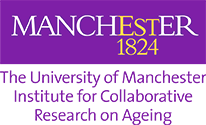COVID-19 and social exclusion
Researching the experiences of older people living in areas of multiple deprivation.
The coronavirus pandemic has raised urgent questions for older people living in cities.
We have been drawing on our research interests and expertise to respond to some of these questions through a series of written pieces for various blogs, academic papers and new qualitative research.
Primarily the group is concerned with how COVID-19 may deepen existing inequalities for those older people who are already experiencing social exclusion and isolation and how it may further disadvantage the most deprived communities in our cities.
We are assessing the challenges facing older people in the context of COVID-19, examining the support provided by neighbourhood-based organisations and community activists, and the potential issues experienced by older people at risk of social isolation.
This work is particularly pressing given a context in which COVID-19 is having a disproportionate impact on low income and BAME communities, which have already been affected by cuts to public services, the loss of social infrastructure, and pressures on the voluntary sector.
Research aims
- To work with community organisations and activists in selected areas, examining responses to COVID-19 and strategies for contacting and supporting older people. The organisations and individuals approached will include a cross-section of different groups, across a range of neighbourhoods in Greater Manchester.
- To examine the impact of social distancing measures on experiences of everyday life among older people from marginalised communities.
- To contribute to evidence to assist local, regional, and national policies which aim to increase support for older people and organisations working on their behalf.
Methodology
The project takes a longitudinal approach to assess the impact of the pandemic on older people over time and involves telephone interviews with people aged 50 and over, drawn from a range of marginalised groups. More specifically, it includes older people who are at risk of social exclusion: either because of their individual characteristics and/or because of the neighbourhoods in which they live.
How has social distancing affected older people’s everyday lives, relationships and support networks?
Funding
Research is funded by:
- Age-Friendly Manchester
- Greater Manchester Centre for Voluntary Organisations (GMCVO)
- Centre for Ageing Better
- Policy@Manchester
Research team
Research is carried out by:
- Dr Tine Buffel
- Dr Patty Doran
- Dr Mhorag Geoff
- Dr Camilla Lewis
- Dr Luciana Lang
- Prof Chris Phillipson
- Dr Sophie Yarker
In collaboration with Manchester BME Network, Ethnic Health Forum, Kashmiri Youth Project, GMCVO, the LGBT Foundation.
Contact
For more information or any queries, contact Chris Phillipson and Sophie Yarker.
Reports
- Phillipson, C., Lang, L., Yarker, S., Lewis, C., Doran, P., Goff, M. and Buffel, T. (2021) COVID-19 and Social Exclusion: Experiences of older people living in areas of multiple deprivation, Manchester Institute for Collaborative Research on Ageing.
- Phillipson, C., Lang, L., Yarker, S., Lewis, C., Doran, P., Goff, M. and Buffel, T. (2021) COVID-19 and Social Exclusion: Experiences of older people living in areas of multiple deprivation: Findings and Recommendations in Brief, Manchester Institute for Collaborative Research on Ageing.
Blogs
- COVID-19: bringing the social back in (published on Association for Anthropology, Gerontology and Life Course AAGE).
- COVID-19: how social distancing will deepen inequalities among older people (published on Centre for Ageing Better).
- Prisoners of space: how the COVID-19 lockdown highlights inequalities in ageing (published on Discover Society).
- Prisoners of space: how the COVID-19 lockdown is deepening inequalities in later life (published on BSG).
- Examining the impact of social distancing on older adults (published on Policy@Manchester).
- Support and exclusion for older adults during COVID-19: is the neighbourhood always best placed? (published on Geography Directions).
- Locked down by inequality: why place matters for older people during COVID-19 (published on Policy@Manchester).
